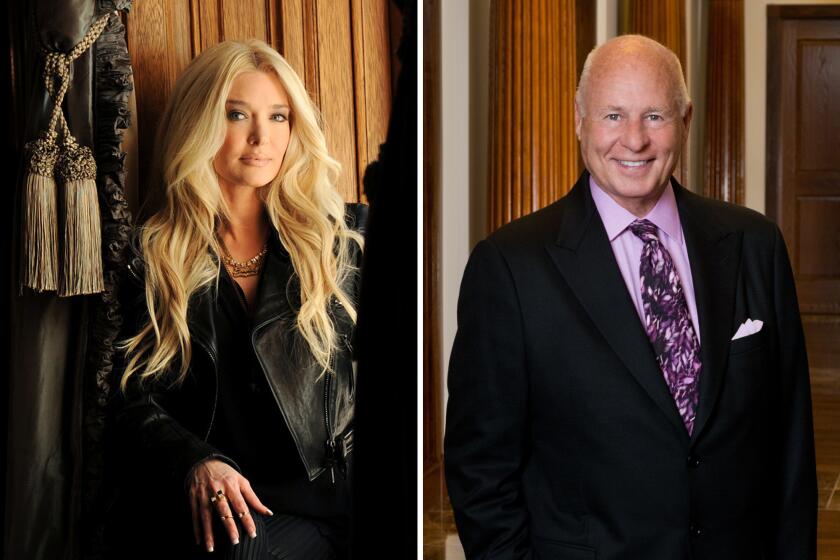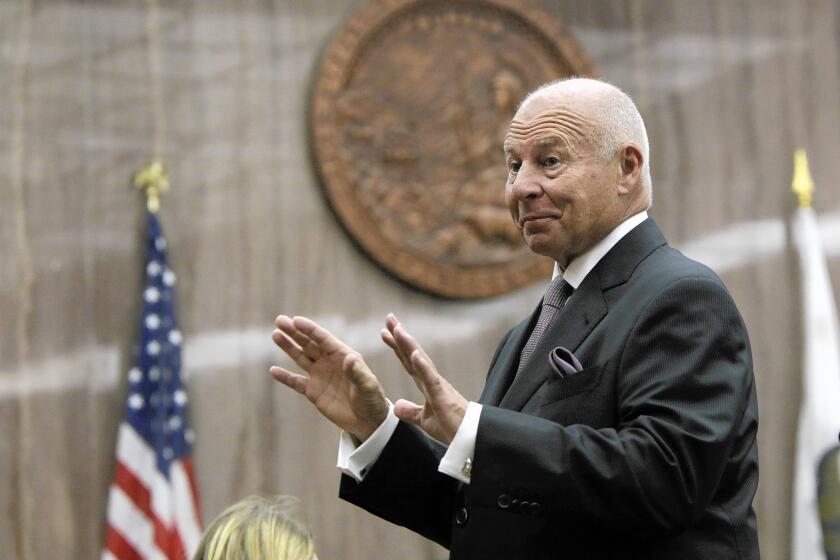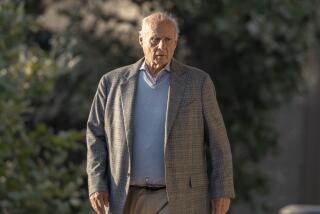Vegas parties, celebrities and boozy lunches: How legal titan Tom Girardi seduced the State Bar
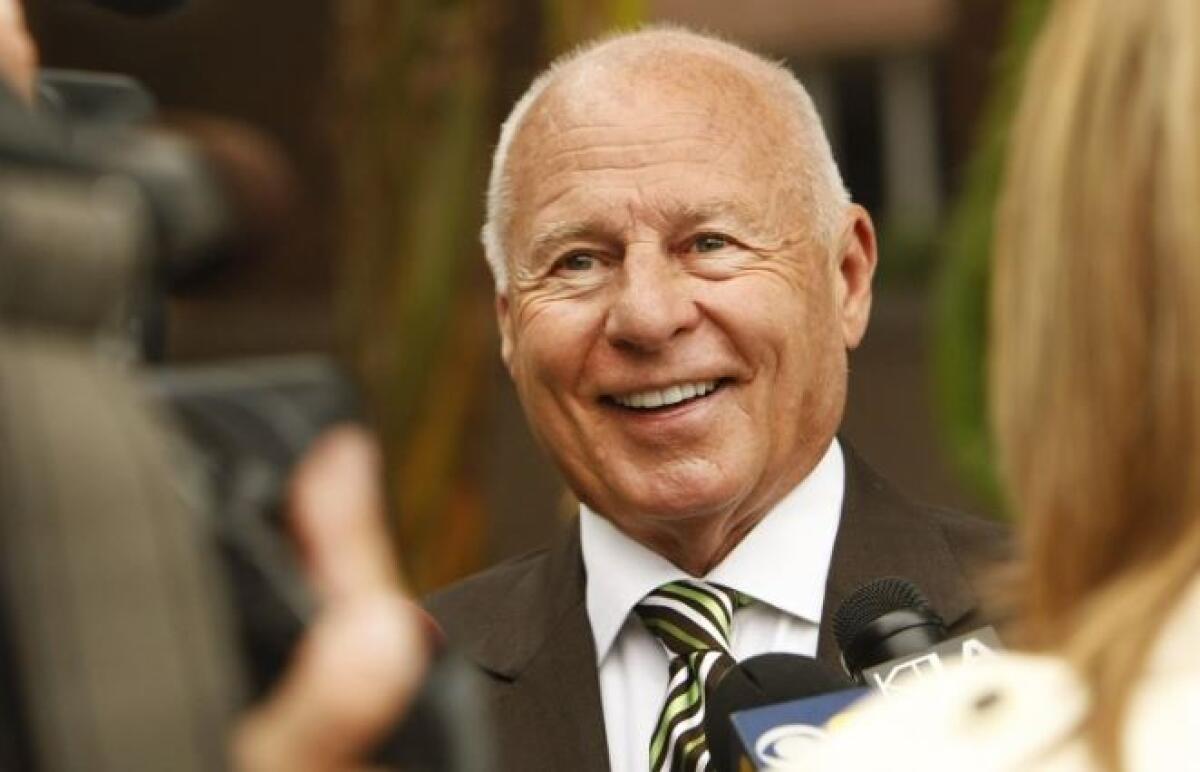
- Share via
The warning signs about Tom Girardi flashed year after year, allegations that he skimmed settlement money, inflated costs, abandoned clients and cheated colleagues.
The vaunted Los Angeles trial lawyer, a regular on “Real Housewives of Beverly Hills,” and his firm were sued more than a hundred times between the 1980s and last year, with at least half of those cases asserting misconduct in his law practice.
Yet through it all, Girardi’s record with the State Bar of California, the government agency that regulates attorneys, remained pristine. The bar took no action to warn the public despite receiving what The Times has learned were multiple complaints. That spotless license allowed him to continue marketing himself as one of the nation’s most renowned civil lawyers, and to sign up thousands of new clients, some of whom would later say he absconded with millions of dollars of their settlement money.
In the wake of the stunning collapse this winter of Girardi’s law firm and reputation, The Times investigated how he was able to stay in the bar’s good graces for decades while attorneys accused of similar wrongdoing were reprimanded, suspended or disbarred.
The newspaper, in months of interviews and reviews of documents, found that Girardi cultivated close relationships with bar officials that at times appeared improper. Agency staffers received annual invitations to a Las Vegas legal conference, where Girardi hosted over-the-top parties at the Wynn casino featuring Jay Leno and other celebrity entertainers, according to attendees, event programs and an internal bar investigation.
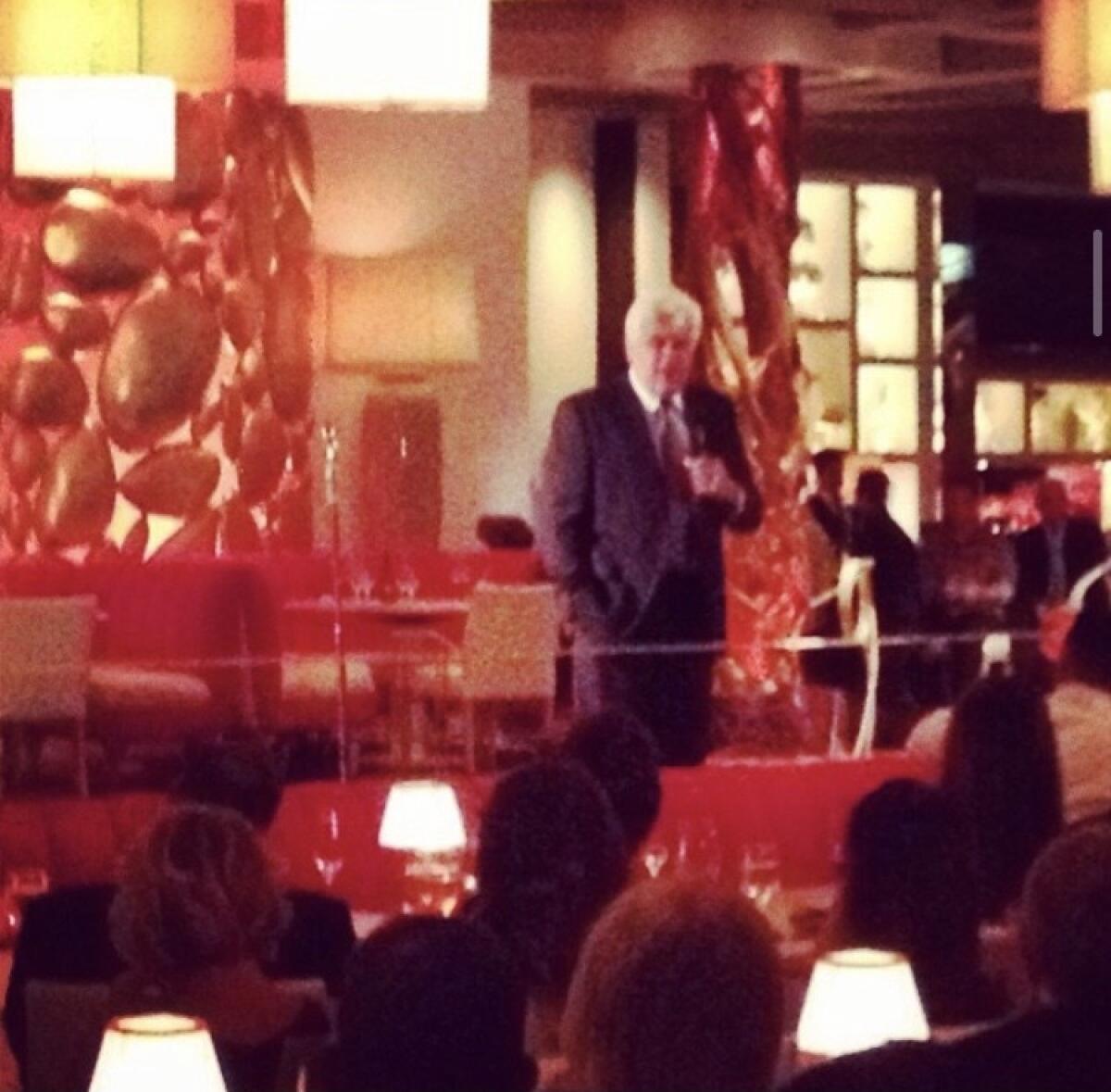
After the bar’s executive director, a longtime Girardi pal, violated policy by using a state credit card to pay for a trip to Mongolia, the Girardi Keese law firm sent a $5,000 check to reimburse the agency, according to the internal investigation and court records.
While under investigation for misconduct in 2010, Girardi bankrolled a lavish retirement bash for the chief justice of the state Supreme Court, which oversees the bar, even booking crooner Paul Anka to perform, according to news reports, court records and interviews with attendees.
He forged a particularly tight relationship with a bar investigator named Tom Layton. Over the decade and a half Layton worked at the bar, Girardi routinely treated him to pricey meals at the Jonathan Club, Morton’s and the Palm, according to Layton’s sworn testimony. The investigator rode on Girardi’s private jet and two of his children got jobs at Girardi Keese, according to the testimony and an online resume. When he and his wife were sued by the contractor building their “dream house,” Girardi provided years of free legal work, records of the case show.
There was open talk at the agency about whether the legal titan’s connections had shielded him from discipline, according to interviews with more than 15 current and former bar officials.
The bar’s inaction came at a profound cost. Orphans, widows, a burn victim and other vulnerable clients who trusted Girardi to win them justice have instead lost millions of dollars apparently spent or otherwise misappropriated, according to judges’ orders in the recent cases.
In one of the biggest scandals in California legal history, Girardi’s firm has ceased operation and he has been forced into bankruptcy. He has been referred to federal prosecutors for criminal investigation, his wife, “Housewives” star Erika Jayne, is divorcing him, and the power he wielded at the bar and elsewhere has vanished.
Girardi was not available to answer questions, according to an attorney for his younger brother. Robert Girardi has said in court filings that his brother has short-term memory loss, and a judge last month placed the 81-year-old attorney in a conservatorship.
“Any interview with Tom Girardi would be inappropriate, given the circumstances that have given rise to the conservatorship,” said Nicholas Van Brunt, an attorney for Robert Girardi.
Read more Times reporting on Tom Girardi
For decades politicians were happy to take Tom Girardi’s money and put up with his requests for something in return.
A state bar spokeswoman said the confidentiality of bar investigations along with other restrictions prevented them from answering many of The Times’ queries about Girardi.
“Beyond those constraints is the reality that much of what you are asking about concerns a time period many years past,” the spokeswoman said in a statement. “The current Board of Trustees and staff leadership team have no knowledge of the information you are seeking.”
Alarming track record
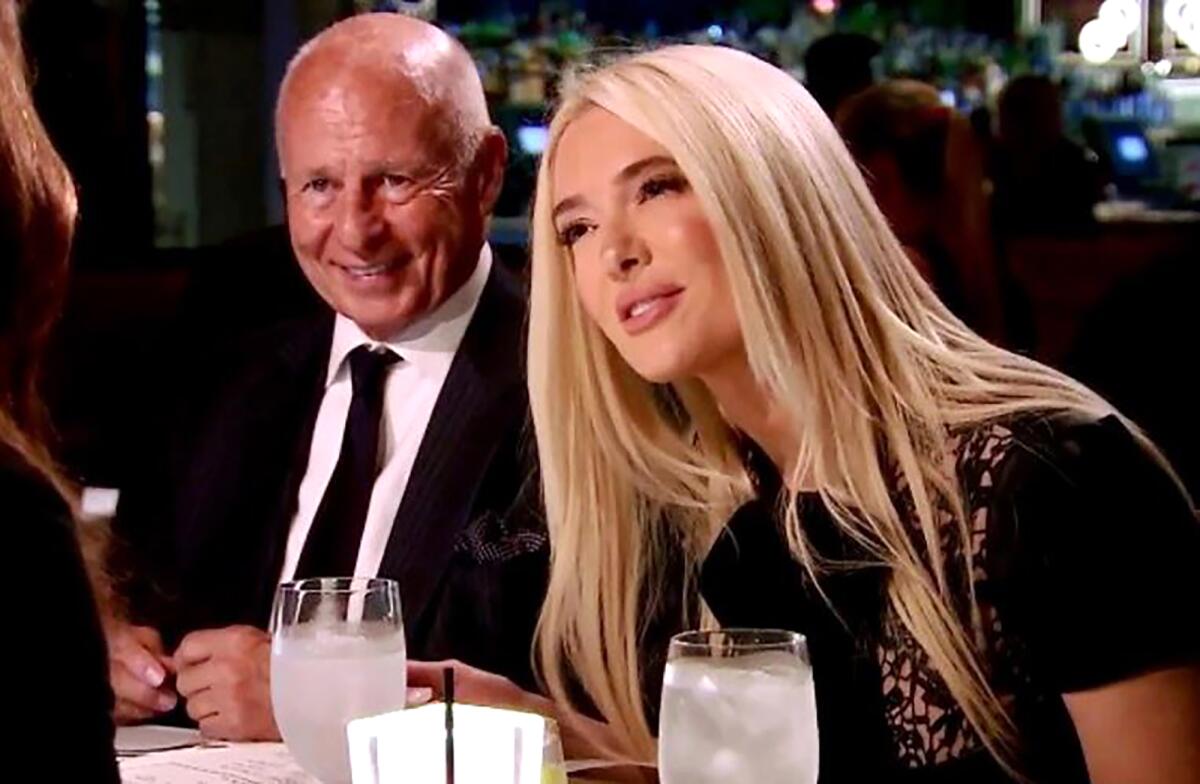
It was 2000, the year the film “Erin Brockovich” gave Girardi a national profile, but proceedings in Superior Court were focused on a previous legal victory.
The roughly $128-million settlement on behalf of hundreds of former employees of Lockheed’s Burbank facility was celebrated by the legal press and, at least initially, by the injured workers themselves.
But after the checks went out, some began questioning how the money was distributed.
The accounting records Girardi reluctantly turned over showed client funds went to “a huge number of persons” unconnected to the litigation, including individuals listed as “K. Ernest Citizen,” “Giovanni Medici” and “Lee Marvin,” according to correspondence filed by the workers’ attorney in subsequent lawsuits.
The records also showed money going to companies and lawyers that the Lockheed workers said had no clear ties to their case, such as $500,000 to a brokerage firm and $25,000 to his close friend, attorney Robert Baker.
Asked recently about the accounting, Baker, a prominent L.A. litigator, said he never received those funds and noted he and his firm “did not have anything to do with that case.”
Lockheed workers came to believe “millions and millions” were missing, as one of their attorneys wrote in a 2002 letter, and filed suit against Girardi. He insisted he had done nothing wrong, but he refused to make his bookkeeper available for a deposition. In what would become a pattern in such cases, he brushed aside demands for access to his firm’s books and other financial records for more than a year — even in the face of three court orders.
As the judge was preparing to send the accounting firm KPMG into Girardi’s Wilshire Boulevard office to conduct an audit, he settled the case. The terms were not disclosed.
The financial improprieties alleged were precisely the sort of misconduct the State Bar of California was supposed to investigate. The main mission of the agency, an arm of the state Supreme Court, is to protect the public by setting licensing standards for California’s 250,000 lawyers and disciplining those who violate ethical duties.
With a budget of about $240 million, the bar has a staff of 600 employees in offices in San Francisco and Los Angeles. Most employees are assigned to the discipline system, which includes prosecutors, investigators and administrative judges. The bar fields about 15,000 complaints a year, primarily from unhappy clients, but it also has the power to initiate investigations based on news reports, lawsuits or referrals from judges.
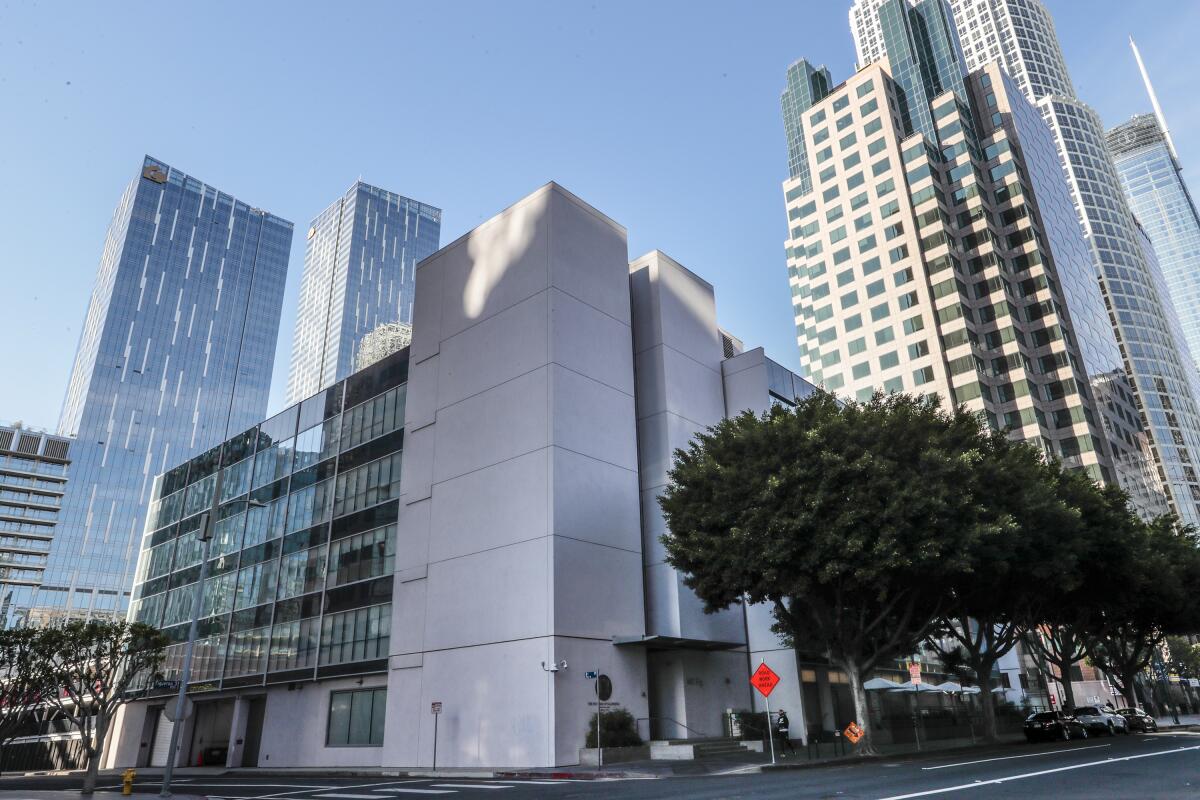
Girardi was the subject of complaints on multiple occasions, according to people familiar with the matter. The nature and timing of those reports are not clear. By law, complaints generally become public only if they result in formal charges in state bar court.
By the time of the dispute over the Lockheed settlement, at least one bar investigator was well known to Girardi.
The attorney and Layton traveled in similar political circles but had different roles. A major Democratic fundraiser since the 1970s, Girardi had the ear of governors and became known widely as a judgemaker who could secure or doom appointments to the bench.
Layton was a registered Republican and a former L.A. sheriff’s deputy. Though he had never risen high in the department, he served on a union committee for political endorsements and became known among law enforcement for his savvy and connections with government officials, according to media accounts and interviews with lawyers and police officials. An injury forced his early retirement in the mid-’90s, but even after he joined the state bar, he retained his place in the power structure, presenting himself as a “special assistant” to Sheriff Lee Baca.
He and Girardi, two decades his senior, were often seen side-by-side at political fundraisers and restaurants, according to interviews with associates and sworn testimony. Girardi held extravagant Super Bowl parties and annual Christmas feasts, where Layton mingled with a powerful crowd of judges, attorneys and politicians.
With Girardi’s support, Layton also became known for helping ambitious attorneys who sought judgeships. He assisted governors Gray Davis and Arnold Schwarzenegger as they vetted applicants, according to Layton’s sworn testimony and news accounts.
His official duties as a bar investigator were less high profile. The post paid under $42,000 a year when he started in 1999, payroll data show, and consisted mainly of interviewing disgruntled clients and tracking down records. It did give him access to a river of confidential information about lawyers and their alleged misdeeds.
It’s unclear what Layton knew about complaints that came in against Girardi over the years. After he left the agency in 2015, he was questioned under oath about his relationship with the attorney, and insisted he never worked on an investigation involving Girardi Keese.
What is undisputed is that Girardi had a lot of dissatisfied clients. He and the firm have been sued at least 45 times for legal malpractice or misappropriation of client money, according to court dockets. In at least 14 other cases, attorneys or expert consultants have alleged he stiffed them out of fees. Girardi did not carry malpractice insurance and relied on employees or attorney friends to represent him, according to retainer agreements filed in court and interviews. He prevailed in some cases. The files of others have been destroyed or are unavailable for review. Many settled before trial.
As the sole owner of Girardi Keese, he was accountable only to himself and shared little about firm operations with the dozens of attorneys who worked there. He was especially secretive about finances, associates said.
One of the few to get a clear look was the forensic accountant Girardi’s second wife hired during their divorce. The accountant was alarmed by what he discovered in the firm’s books. A cardinal rule of the legal profession is that attorneys may not touch a cent of their client’s money — a transgression that can result in disbarment, prison or both.
The accountant described “indiscriminate and inappropriate use of the client trust accounts,” including a $9-million payment Girardi made to himself that was never recorded on his firm’s books, according to the accountant’s sworn declaration.
The brother of prominent Los Angeles attorney Tom Girardi has asked a judge to appoint him as a guardian over his sibling, asserting that the elderly lawyer “is incompetent and unable to act for himself.”
“We have discovered several examples of monies taken directly from client trust accounts to pay for [Girardi’s] personal expenditures,” the accountant, Alfred Warsavsky, wrote, describing a $50,000 check made out to the holding company for his private jets, an unexplained $500,000 payment to a title company, and a $340,000 purchase of shares in a Las Vegas hotel, according to declarations from the accountant. Girardi’s lawyer contested the claims.
It’s not clear whether the bar was notified. The judge, one of the lawyers and Girardi’s second wife are dead.
In the years that followed, there was a drumbeat of additional complaints. One former client accused Girardi in 2002 of not conducting basic legal work in her lawsuit against a businessman for allegedly drugging and raping her.
An executive fired by Lee Iacocca accused Girardi that same year of failing to depose key witnesses and file necessary motions in a wrongful termination case. Both cases settled before trial with no finding of wrongdoing.
Other Lockheed workers filed additional suits, and Girardi kept fighting their requests for documents. In one case, he racked up nearly $60,000 in penalties for defying court orders. Ultimately, the cases were dismissed on statute of limitations grounds, and the misappropriation allegations never got a full hearing.
A connect at the bar
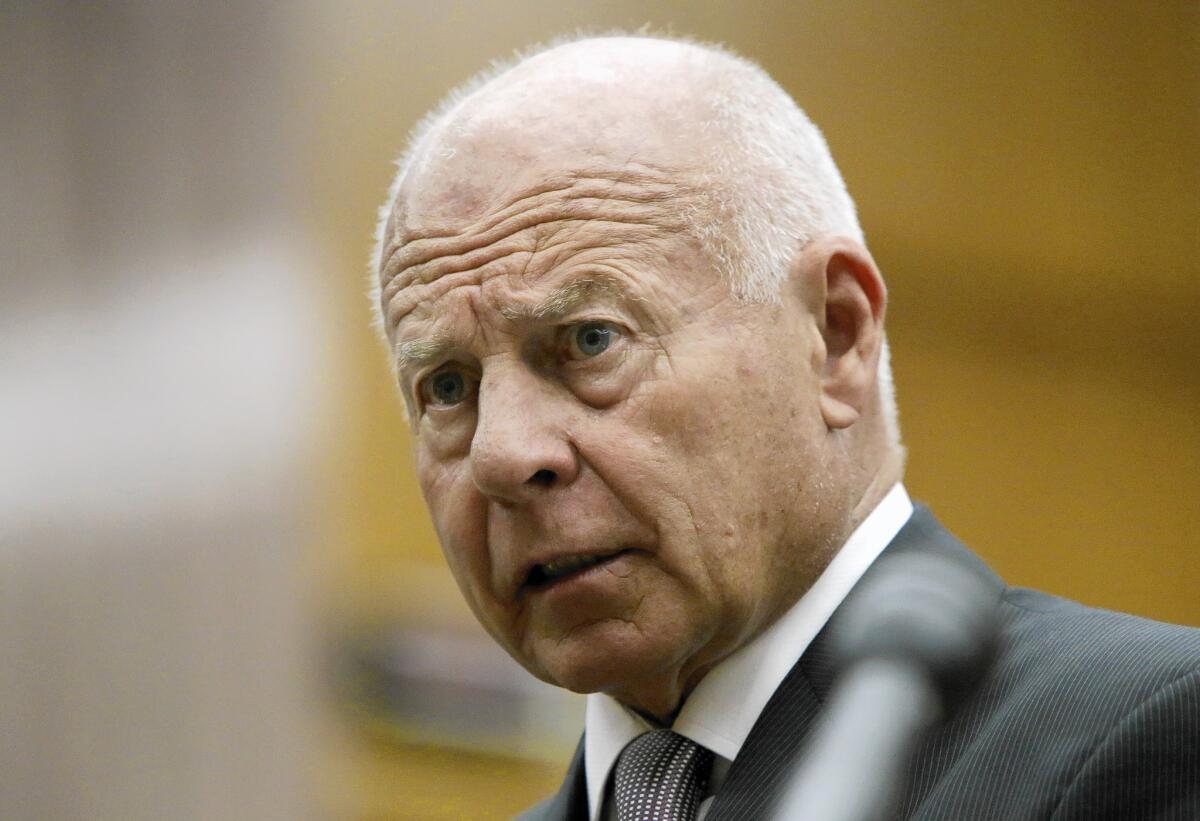
The longer Layton worked at the bar, the closer his connection with Girardi became. His teenaged son began working as a clerk at Girardi Keese in 2003 and remained employed there for seven years, according to an online resume. Layton’s daughter was hired briefly to do filing, he said in a deposition.
He traveled on one of two private planes the attorney kept at the Van Nuys airport, according to his sworn testimony.
The men often ate together at restaurants beyond the budget of most government workers, such as Morton’s, where filet mignon starts at $43, and the Palm, with its $36 chicken parmesan. Girardi ordered bottles of pricey red wine for the table — even for lunch. Layton became such a fixture that his caricature was added to the Palm’s wall, right above former U.S. attorney Debra Yang. Girardi almost always picked up the check, according to interviews with people who attended the meals and Layton’s sworn testimony.
When questioned under oath about these meals, Layton described their conversations as primarily about politics and law enforcement.
During these years, Layton and his wife, a USC accounting professor, embarked on a remodel of their modest La Cañada Flintridge residence. The project doubled the square footage to create the six-bedroom, five-bath home of his wife’s dreams.
Two years into the project, with costs approaching a half-million dollars, the Laytons fired their contractor, who then sued the couple.
Girardi and his firm were on the case immediately, with the lawyer’s attorney son-in-law, David Lira, dispatching a construction expert to inspect the project. In the years that followed, Girardi Keese poured resources into the case without charging the Laytons.
“As I previously indicated, this is a pro bono case for the firm,” Girardi wrote to the arbitration company JAMS in 2009.
Three other veteran litigators at the firm worked on the case, which went all the way to the state Supreme Court. At times, Girardi appeared deeply invested in its outcome, and during one mediation, he stormed down a hallway, loudly demanding the Laytons receive money, one attorney recalled.
The contractor prevailed and the couple were ordered to pay more than $235,000. The sides reached a confidential settlement in 2014 as the case was awaiting a Supreme Court hearing. The same year, Girardi signed on to handle another personal issue for the Laytons: A suit against the La Cañada Unified School District for allegedly failing to protect their teenage son from bullying. It settled a year later for $190,000, according to district officials.
State law caps the value of gifts or services many public employees can accept from one individual, with the current limit at $520 per year. Investigators like Layton, however, were not covered by the law until 2014, the final year of the contractor litigation.
That year, he did not list Girardi’s legal services as a gift in a mandatory disclosure form. It’s unclear if Girardi Keese was still working for free. The value of Girardi’s legal work was not disclosed, but his opposing counsel’s total fees tallied in court papers offer some idea: $114,000.
Ann Ravel, former chair of the California Fair Political Practices Commission, which enforces public employee ethics laws, called the free legal representation “incredible.”
“There are some exemptions for gifts, but this would not be one of them,” Ravel said, adding, “Not thousands of dollars for someone who clearly would come under the authority of the individual who is receiving those gifts.”
Case for Nicaraguan banana workers leads to trouble

When Girardi was called out publicly for his behavior, it wasn’t by the bar, but a more feared and respected body: the federal judiciary.
What brought him into the judges’ crosshairs was a potential bonanza of legal fees Girardi had spotted in the early 2000s in the banana plantations of Nicaragua. He and his longtime friend, Century City litigator Walter Lack, and local attorneys signed up more than 400 field workers for a suit against Dole and other companies over the use of a toxic pesticide.
The problem was that the Nicaraguan lawyers had mangled Dole’s name, suing a defendant that did not exist — “Dole Food Corporation” — instead of the global conglomerate Dole Food Company. The Nicaraguan court handed down a $489-million judgment in 2002 against the nonexistent entity and other companies.
To collect the head-spinning amount, Girardi headed with Lack to a jurisdiction where the judges knew their names and reputations, L.A. Superior Court. The corporate defendants wanted the case in federal court, seen as friendlier to businesses, and it was there that things began to unravel.
In their efforts to ensure the case was heard in L.A. Superior, Girardi and his colleague had filed what purported to be a translation of the Nicaraguan court order for payment. In it, the name of the nonexistent corporation had been replaced with the name of the actual Dole company headquartered in Westlake Village.
The ruse was detected by a federal judge, who threw out the case. But Girardi and Lack continued appealing for years, incensing the 9th Circuit’s chief judge and others on the court. A 2008 investigation by a retired jurist lambasted Girardi and Lack for “the persistent use of known falsehoods.”
Lack received a six-month suspension from practicing in federal courts and a $250,000 fine. Girardi, who claimed he hadn’t read the court papers before filing, was found to have “recklessly” made false statements and fined $125,000. In a recent interview, Alex Kozinski, then chief judge of the U.S. 9th Circuit Court of Appeals, described it as “about as serious a case of misconduct as I had ever seen.”
The court discipline triggered an automatic investigation by the bar, but there was a gap of more than two years between the time the retired judge’s report made it clear Girardi would face an investigation and the court decision making the sanction official.
During that interlude, there was a change in leadership of the bar that some observers saw as beneficial to Girardi. An attorney friend, Howard Miller, who worked at Girardi Keese, was elected president, and Girardi attended his 2009 swearing in.
Under his law partner’s leadership, the bar’s board of trustees forced out the longtime executive director, and Miller recruited Joe Dunn, another friend of Girardi, to fill the post.
Dunn was an Orange County plaintiff’s attorney and former state senator. His experience in Sacramento was attractive to trustees, who perpetually confronted problems securing funding from the Legislature. Dunn’s appointment sailed through.
‘There’s only one guy, Tom Girardi, who could even conceive of this.’
— Chief Justice Ron George
Just before Dunn came aboard in 2010, the state bar held its annual convention in Monterey, and Girardi was there. The Dole matter had been referred to the bar for investigation by then, and to many legal insiders, Girardi’s career was on the ropes. If he was worried, he didn’t show it. Indeed, his firm paid for a lavish party at the convention for retiring Chief Justice Ron George. Girardi flew in an orchestra and hired Paul Anka to serenade the chief in a soaring white tent on the hotel grounds.
The ethical implications of an attorney under investigation by the bar underwriting a party for its de facto boss troubled some agency officials and they declined to attend or left early, according to several who spoke to The Times.
“There’s only one guy, Tom Girardi, who could even conceive of this,” the chief justice told the hundreds of lawyers and judges at the bash, the Daily Journal reported. Interviewed recently, George said he was unaware Girardi was under investigation at the time and that he had not considered the event problematic because it also honored Miller, the departing bar president.
Because Miller worked for Girardi’s firm, the Dole investigation was assigned to a private lawyer, but that attorney had never handled a bar investigation. He decided not to pursue charges against Girardi and Lack, reasoning that the fines and public scolding by the federal court were punishment enough.
Girardi was elated, telling the Daily Journal he was “totally vindicated.”
Many legal insiders were shocked at what they saw as a slap on the wrist. Kozinski described the outcome as “very surprising.” Referencing the recent revelations about Girardi, he said that if the bar had taken its investigation more seriously, “Maybe some of this would never have happened.”
‘Avoiding Trouble with the State Bar’
When a partner at an L.A. law firm decided to seek the presidency of the bar in 2014, the outgoing president gave him some advice: Go to lunch with Tom Layton and get his support.
The aspiring candidate, corporate litigator Craig Holden, was surprised given that Layton was a low-level bar staffer with no role in the election, but he agreed to meet him nonetheless at Morton’s.
After Holden settled in at the swanky steakhouse, everything clicked into place. Girardi materialized at the table, sat down next to Layton and launched into his expectations for bar leadership.
The message, board lawyers would later write in a confidential internal report, was “that the ‘power broker’ on whose support Holden’s election depended was in fact Girardi.”
Several former bar officials disputed that Girardi ever had the kind of power he was displaying, noting, for example, that Holden ran unopposed. But there was no doubt that in the years after his friend Dunn became the bar’s executive director, Girardi appeared comfortable publicizing his connections.
One example was the annual convention of the Consumer Attorneys Assn. of Los Angeles (CAALA) held in Las Vegas. As one of the state’s best-known plaintiffs’ attorneys, Girardi had enormous influence in the group and poured his firm’s money into the yearly meeting, a mash-up of training seminars, networking and bacchanalia. While many law firms sponsored events or meals coinciding with the conference, Girardi Keese’s boozy gala each year at the Wynn resort stood apart for its extravagance and comedy and musical performances.
Layton regularly attended, as did a group of bar attorneys and judges with ties to Girardi. For the 2014 convention, five bar employees, including Dunn, were invited to speak on a panel entitled “Avoiding Trouble with the State Bar,” according to a program. Bar lawyers would later say the event, which took place on a workday, deviated from office policy and was “an example where Dunn bent (or attempted to bend) the normal rules to accommodate a request perceived as helpful to Girardi,” they later wrote in the internal report.
Then there was the Mongolia trip. After the country’s consul contacted the bar in 2013 for advice about setting up a regulatory system for attorneys, Dunn decided to travel there. He took with him Girardi’s friends, Layton and Howard Miller, the former bar president.
Dunn told trustees that no state bar funds would be used to pay for the travel, according to an arbitrator’s subsequent findings. But he ended up relying on a government purchasing card for the airfare for him and Layton, and he racked up additional costs in cellphone roaming fees. Shortly before Dunn submitted his expense report, Girardi’s firm sent over a check for $5,000. “The intent of the donation remains ambiguous,” bar lawyers later wrote in the internal report.
Meanwhile, Girardi’s close relationship was raising questions within the bar. Some at the agency understood that Layton was working part-time for the lawyer, though they were unclear about the arrangement, according to two former high-ranking officials.
Layton was later asked at a deposition whether he had worked for Girardi while a bar employee.
He replied, “I don’t recall.”
Evidence surfaced after Layton left the bar that suggested he had been referring potential cases he encountered to Girardi’s firm. In one instance, the investigator contacted Girardi Keese by email about a scam involving a phony law firm that was targeting Marines at Camp Pendleton, according to emails cited in testimony.
A junior attorney at Girardi’s firm replied to Layton, “Is GK a go for this case? I.e., has Tom said anything?”
Layton said that he planned to meet soon with the San Diego district attorney’s office and the state attorney general. “I am going to ask if a representative of GK [can] attend the meeting.”
Layton said in deposition testimony that he was never paid for referrals and did not refer cases he learned about through investigations.
***
Not everyone shrugged off Girardi’s grip on the bar. Chief trial counsel Jayne Kim was a former federal prosecutor who had been hired in 2011 to professionalize the disciplinary system and eliminate the backlog in investigations. She was apolitical, no-nonsense and unyielding when it came to rules and ethics.
“The highest character and integrity, really impeccable,” former bar trustee and San Diego attorney Heather Rosing recalled.
Kim had crossed paths with Layton in the early 2000s when she was a staff attorney, and now back at the bar, with him under her supervision, she saw that little had changed.
Layton was on the phone with Girardi during work hours, he crowed about their friendship to colleagues and he “often disappeared during the work days, and appeared to be engaging in political activities during State Bar time,” she later wrote in a formal complaint.
After Kim reported her concerns to Dunn, the executive director moved Layton away from her supervision and into a post that was officially classified as “public information officer.” His actual role was the subject of much speculation.
“Whatever he was doing for Joe ... was unclear, was not official,” a former bar executive who worked in the same department, Carol Madeja, later testified.
Trustees puzzled at how Layton hovered around Dunn at board meetings wearing what appeared to them to be a gun.
“I can remember thinking at the time, what role does a guy like Tom Layton have in anything to do with leadership of the board?” said Dennis Mangers, a former bar trustee.
Dunn later asserted in a court declaration that he had tasked Layton with being a “liaison” to “the California judiciary, legislature, and law enforcement.”
Though Kim no longer supervised Layton, she and Dunn clashed on other fronts, including whether her lawyers and investigators should be permitted to attend the Las Vegas convention.
Kim complained formally in July 2014 in a 17-page report alleging Dunn and others in power were serving “private or personal agendas.” One page devoted to Layton began, “I know no one within the State Bar that can explain, in any meaningful detail, Layton’s duties and responsibilities.” She noted “Layton’s close ties to Tom Girardi … and the appearance of impropriety.”
The board hired the white-shoe firm Munger, Tolles & Olson to conduct a confidential investigation. It didn’t stay a secret from Girardi for long.
When investigators tried to question Dunn’s longtime assistant, “Girardi suddenly and unexpectedly appeared” as her lawyer and “launched an unprofessional tirade of threats,” the Munger Tolles investigators wrote to the board in their internal report.
Girardi claimed he was concerned they might treat the assistant rudely, but the investigators had another theory. Perhaps, they wrote, “He perceives a threat to Dunn as a threat to his possibly favored position with the Bar.”
Though they hadn’t uncovered instances of misconduct involving Girardi, the investigators concluded, it was “striking” how frequently he and his firm turned up in their investigation.
“The closeness of the relationship between some senior managers and that firm does raise potentially troubling perceptions that the Board should take action to rectify going forward,” the Munger Tolles lawyers wrote.
The internal report was shared with the chief justice, Tani Cantil-Sakauye, who made it available to the state Supreme Court’s other justices. A spokesman for the chief justice said she took no action and said she did “not recall any details of the report nor any sections involving Mr. Girardi.”
The Munger Tolles lawyers had identified other misconduct by Dunn that had nothing to do with Girardi and Layton, and the board terminated him. Layton and Dunn’s assistant’s positions were eliminated.
Secretly copying documents with a phone
If a stranger to the State bar had engaged in this conduct, he would surely be prosecuted
— bar attorneys in a draft complaint.
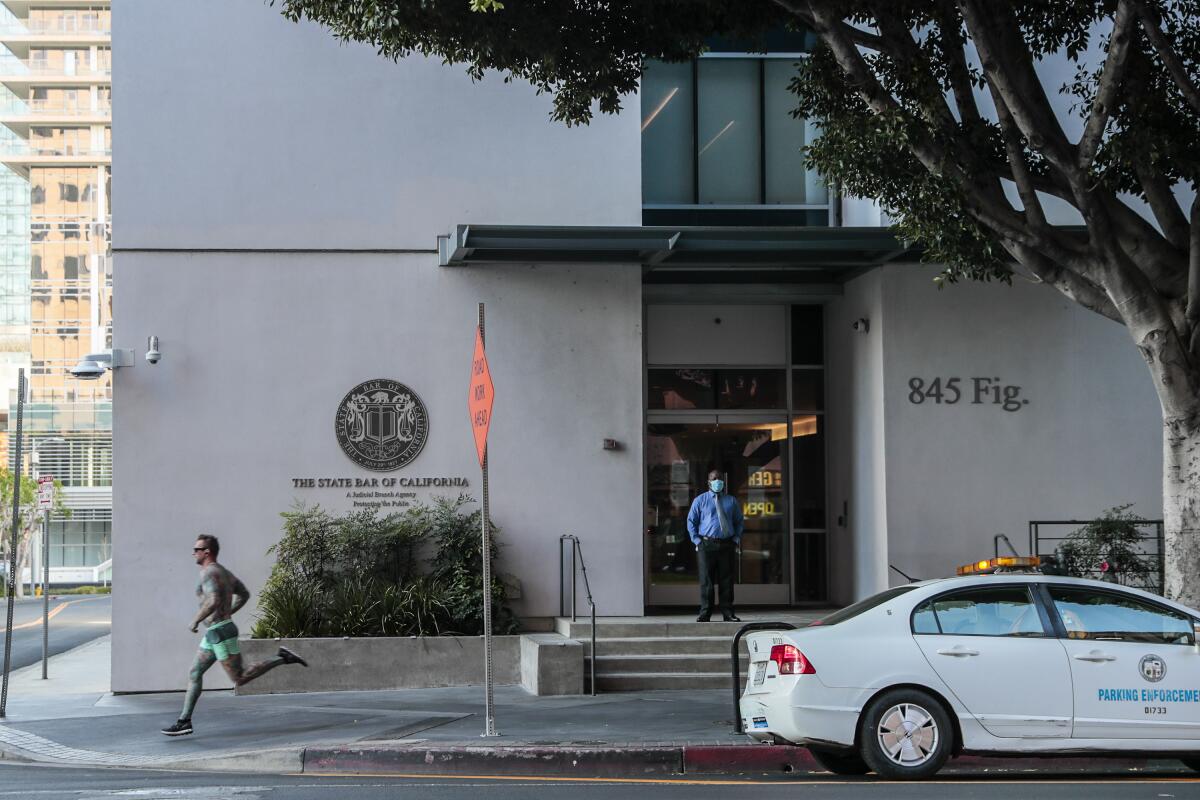
It was a fall weekend. The state bar offices on Figueroa Street were dark, but a lone figure moved stealthily on the floor where confidential case files were held.
John Noonen had been at the agency since the Reagan administration, working his way up to managing director of investigations, but he was not on official business that Sunday afternoon in 2015.
Noonen was on the hunt for a particular file with highly sensitive records about an attorney with whom he was close. He found it, snapped 15 photos with his phone and slipped out, according to a draft lawsuit later prepared by bar attorneys.
Most of Girardi’s allies had been forced out of the bar by then. Noonen remained. He counted Layton as a friend and was also acquainted with his powerful patron, Girardi, who for a time had employed Noonen’s daughter as a law clerk, according to her online resume.
The ouster of Layton and Dunn had cost Girardi his insider status, and he was furious.
Working with his close friend, attorney Robert Baker, and L.A. lawyer Mark Geragos, Girardi coordinated suits against the agency on behalf of Dunn, his assistant and Layton. The former employees presented Dunn’s termination as the result not of managerial incompetence, but of machinations by Kim, the agency’s top prosecutor, to conceal her own alleged deficiencies. Layton and the assistant, Sonja Oehler, contended they were pushed out in retaliation.
Girardi, then in his mid-70s, appeared particularly concerned about the impact on attorney investigations. In a lawsuit he eventually filed on behalf of Dunn’s assistant, Oehler, Girardi expressed fear that bar leadership was retaliating against him and the attorneys representing the ousted employees by ordering any complaints “that were filed in the past 30 years be re-opened despite the fact all of the complaints had been closed for decades.”
As the legal war waged, Noonen began downloading and copying records. He would later say he needed confidential materials to support a whistleblower claim against Kim and others.
For nearly a year, he gathered a trove of information about the agency’s most sensitive work: ongoing investigations of lawyers. He amassed more than 15,000 emails, memos, spreadsheets and other records, including hundreds of photos he took during 10 off-hours visits to the bar office, according to court filings and the draft complaint. The records contained unfiltered information such as client complaints and interview notes.
“If a stranger to the State bar had engaged in this conduct, he would surely be prosecuted,” bar attorneys later wrote in the draft complaint.
Noonen was not charged with a crime.
The bar laid Noonen off in November 2015, but it did not end his search for confidential bar information. The following year, he met with Oehler, Dunn’s erstwhile assistant, at the Wynn casino during the CAALA convention, and she handed him an agency laptop she had kept after her dismissal.
Noonen copied materials from the laptop onto a flash drive and delivered them to Girardi, according to sworn accounts by Oehler and Noonen.
Noonen later said in sworn declaration he did only a “cursory review” of the laptop for information helpful to Girardi in bringing Oehler’s case. But the bar attorneys accused Noonen of having “mined” its contents, citing a forensic examination that showed it had been accessed at least 11 times using three storage devices.
In this period, Girardi was being sued regularly by dissatisfied clients. People he represented in Lockheed and another case concerning Shell Oil were in court demanding financial records from their settlements. Dozens of cancer survivors also alleged Girardi had misappropriated part of their $17-million settlement from a pharmaceutical company.
There were “a number” of complaints to the bar about Girardi then, according to Robert Hawley, who served as acting executive director after Dunn’s firing. He said he did not know the nature of the reports. Because of the ongoing litigation, they had to be referred outside the agency and it was his job to find private attorneys to investigate them. He left his post before the cases concluded. They did not result in public discipline.
With Girardi at the helm, the legal battle by the ex-employees rolled on for years. Esteemed attorneys across the state who served as bar trustees had to sit for depositions. The chief justice along with her private attorney each faced questioning under oath.
An arbitrator sided with the bar and gave Dunn no money, and he did not respond to messages seeking comment. The others settled: Noonen negotiated an $85,000 payout and Oehler, Dunn’s assistant, received $150,000, according to settlement agreements obtained through public records laws.
With Girardi by his side, Layton worked out a $400,000 settlement in 2019 in exchange for dropping his lawsuit. The bar declined to provide a rationale for the sum. The agreement contained a non-disparagement clause for both sides.
Layton and Noonen did not respond to interview requests or a detailed list of questions.
Girardi’s practice was already falling apart by the time of the settlements. He had turned to high-interest lenders, who were demanding the return of millions of dollars. Vendors clamored for payment. Attorneys left the firm. A burn victim Girardi had represented years earlier against PG&E sued for settlement funds, eventually calculated at $12 million, he said the attorney had pocketed.
A judge has frozen the assets of attorney Thomas Girardi, who handled the case that inspired “Erin Brockovich,” saying he misappropriated funds intended for the families of jet crash victims.
California’s legal world seemed unable to grasp what was happening to one of its most prominent attorneys. The judge overseeing the burn victim’s lawsuit, Holly Fujie, was a former state bar president. As the months passed, more and more evidence surfaced indicating that Girardi had spent his client’s money. Fujie raised the possibility of alerting the bar, but Girardi assured he would pay the money he owed, according to the burn victim’s attorney, Boris Treyzon. Fujie did not respond to questions from The Times; judicial ethics limit jurists from commenting on pending cases.
As 2020 came to a close, a judge outside California finally took action. U.S. District Court Judge Thomas Durkin in Chicago was handling airline crash litigation and learned that Girardi had failed to pass on millions due his clients, widows and orphans in Indonesia. At a December hearing, Durkin erupted in anger, condemning Girardi’s conduct as “unconscionable,” and referring him immediately to federal prosecutors.
The move attracted massive media coverage and the next day, Fujie scheduled a hearing about whether she should report Girardi to the state bar.
To this day, he holds an active license to practice law.
More to Read
Sign up for Essential California
The most important California stories and recommendations in your inbox every morning.
You may occasionally receive promotional content from the Los Angeles Times.
